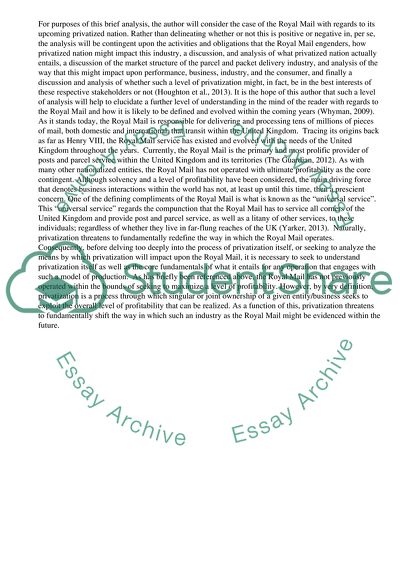Cite this document
(“Royal Mail Privatisation Essay Example | Topics and Well Written Essays - 1500 words”, n.d.)
Retrieved from https://studentshare.org/business/1484962-royal-mail-privatisation
Retrieved from https://studentshare.org/business/1484962-royal-mail-privatisation
(Royal Mail Privatisation Essay Example | Topics and Well Written Essays - 1500 Words)
https://studentshare.org/business/1484962-royal-mail-privatisation.
https://studentshare.org/business/1484962-royal-mail-privatisation.
“Royal Mail Privatisation Essay Example | Topics and Well Written Essays - 1500 Words”, n.d. https://studentshare.org/business/1484962-royal-mail-privatisation.


